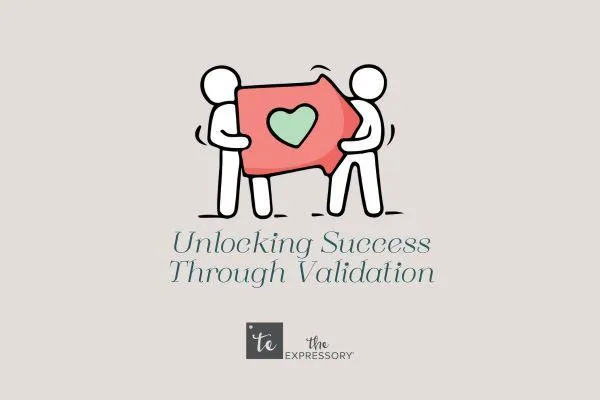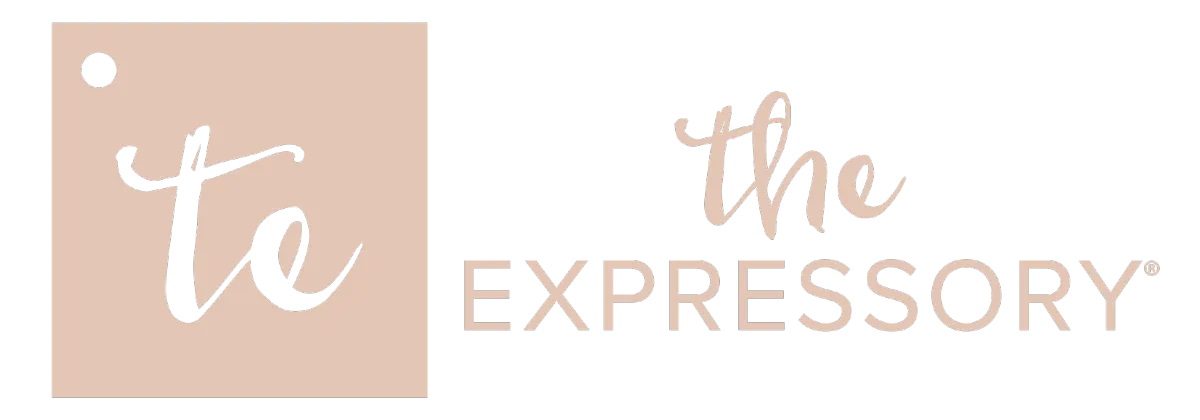
What Swimming Teaches Us About Team Relationships
In my latest video, I break down how swimming teaches us the importance of these relationship-building efforts and the specifics of what we as leaders need to nurture with our teams.
Holiday Gift Insights - What Everyone Else Is Doing
In an effort to simplify the decision-making process, we're sharing some of the trends we've seen with gifting over the years. We're even sharing our best seller and why that gift had such success.
What Makes A Successful Holiday Gift? The Travel Bag Edition
Last year we had the opportunity to work with one of our clients in the travel and tourism space to design an experience that delivered their highest engagement yet.

Unlocking Success Through Validation
In the fast-paced and competitive world of business, we often focus on strategies, technologies, and profits. However, in the hustle to create business plans we often overlook a crucial aspect that can contribute significantly to our success: the human side of doing business. And more specifically how we can transform our business relationships to unlock new opportunities.
A Catalyst for Success
In 2007, social psychologist Harry T. Reis published a paper titled "Steps Toward the Ripening of Relationship Science." Drawing on his expertise in relationships and social psychology, Reis noted that a common theme among relationship research was the concept that the foundation of any relationship required that you perceive the partner in the relationship as "responsive" to your needs, values and interests. He identified three crucial qualities that arise when a partner is perceived as responsive:
A Sense Understanding: Responsive partners make individuals feel truly understood and appreciated, allowing them to express themselves authentically within the relationship.
Validation: In responsive relationships, partners see value in each other's perspectives and goals. This validation reinforces individuals' self-worth and fosters a deep sense of connection.
Care: Responsive partners actively make you feel supported and cared for, creating warmth and connection, even when they are physically absent.
Noteworthy in of the research presented was the fact that the feeling of being supported often matters more than the actual support received. When people experience these qualities in a relationship, they report improved emotional well-being and reduced loneliness – They feel more connected. Moreover, such relationships build trust and admiration, essential components for long-lasting connections.
Now, let us dive into how that translates to life and business.
Dave Rebro is the Technology Therapist at DRCS Solutions. He works with small business owners and professionals, helping them simplify technology and improve their efficiency. Early on in Covid I had a series of conversations with business leaders about impactful experiences in their lives. Dave’s stories stayed with me because they show the power of one simple act – Validation.
Dave shared that he received this important gift twice in his life when it really mattered and made a difference.
The first story takes us back to Dave's college days when he played baseball. He was meeting with his baseball coach, and they were having a conversation about academics and life. At one point, the conversation went even deeper than normal, which Dave recalls as unusual “because I really didn't go there often and have those type of conversations.” But due to his level of comfort with the coach, Dave stayed in the discussion. And that is when the coach sat back and said, “You're something special. I believe in you."
Dave recalled feeling stunned. He remembers leaving the office and just letting those words replay in his mind. Those words of validation not only inspired Dave but also encouraged him to strive for greatness.
The second time Dave heard those words was during a significant career transition. As he moved from corporate land into a business of his own, he remembers struggling. As we all know, small business is hard work and sometimes you really find yourself questioning the path you’re on. It was at a moment like this when Dave’s wife, Carrie, told him, "I believe in you. You're going to turn this around."
Dave said, “Hearing those words, those four words, I believe in you is one of the best gifts you can ever hear from somebody.” Carrie's validation during a challenging period in Dave's career provided him with the motivation and support he needed to keep going.
Blending Insights and Experiences
Now, let us connect the dots between Harry Reis's research and Dave Rebro’s experiences. Dave's stories exemplify how validation—expressing belief in someone's potential—can create powerful, engaged relationships in business.
A Sense of Felt Understanding: Dave's coach and his wife not only recognized his potential but also understood him on a deep level, knowing where he was in that moment and what his challenges were. This understanding fostered trust and a sense of feeling valued.
Validation: Both Dave's coach and his wife validated his aspirations and worth. Their belief in his capabilities boosted his self-esteem and commitment to his goals and the future he envisioned for himself.
Care: Dave felt cared for and supported by both his coach and his wife. Their validation and belief in him reassured him that he had a source of support and warmth, even during challenging times.
When you make people feel understood at the level those two did, you automatically set up the opportunity for reciprocation. It seeded a desire in Dave to pay that moment of care and understanding forward, be that to the relationships themselves, or others.
Incorporating Validation into Business
Understanding the importance of validation in business is crucial for business leaders today. By actively practicing validation—whether through words of encouragement, belief in potential, or acknowledging others' perspectives—we can:
Strengthen relationships with colleagues, employees, clients, and partners.
Foster trust, admiration, and longevity in our professional relationships. Remember the old saying – It’s who you know!
Improve emotional well-being and reduce feelings of social disconnection – These matters in our workplace more than we recognize in most cases.
Create a culture of mutual support, respect, and success within our organizations.
I asked Dave how this plays out in the work he does today. He told me “I am known as the technology therapist. I absolutely love combining the human spirit, the human mind, and the human work ethic and technology. So, I work with small business owners, professional groups, and I holistically look at how they work, and how we can help them or how I can help them be more efficient, more productive with mental processes, and then bring technology and simplify it for them.”
Dave has one simple practice he has implemented in his own business that continues to pay forward the validation he has received over time. He calls it “Keep in touch Tuesday.” Every Tuesday, he has a workflow setup to remind him to perform this practice. He uses this day to reach out to people. Maybe it's words of kindness or acknowledgement. Perhaps it’s a card. Sometimes it’s information about a shared interest that the person might find of use. And sometimes it’s just encouragement because he knows they're going through a tough time. Again, Dave is practicing the art of nurturing relationships at their foundational level – Showing his understanding, validation, and care.
In business relationships and connections play a pivotal role in success, validation emerges as a tool that can amplify engagement and success. By integrating the foundational qualities of relationship building and experiences shared today, validation is more than a kind gesture; it is the cornerstone that empowers individuals to thrive. As business leaders, let us remember that the greatest gift we can offer is our belief in someone's potential and our unwavering support in their journey to success. In doing so, we cultivate an environment where everyone can reach their full potential and where business relationships flourish.
One of the familiar challenges we hear from our clients is that they are not sure what to say when it comes to acknowledgement and recognition. Sometimes it’s hard to find the words that express all you mean to say. If you need additional help with validating the people that make up your key supporting relationships, don’t hesitate to reach out. You can join us at one of our upcoming community Q&As to discuss ideas and get your questions answered. Or you can schedule some time to talk with us directly.
Address:
1500 S. Sylvania Ave #106
Sturtevant WI 53177
Phone:
414.243.8971

